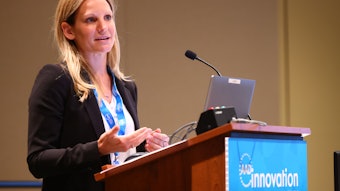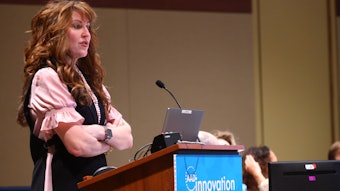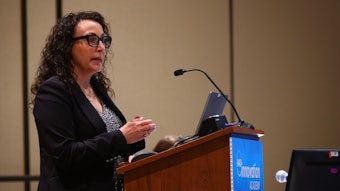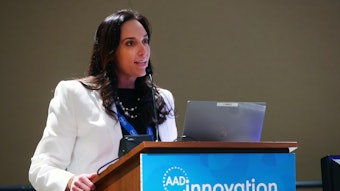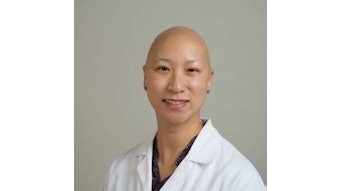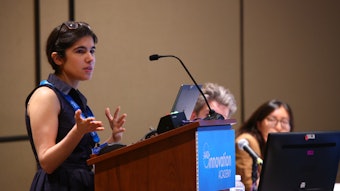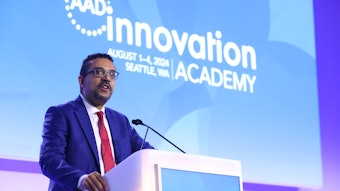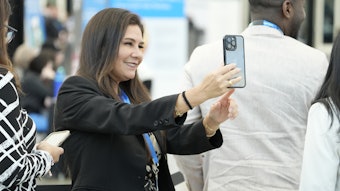Rolling with the changes
You can’t control change, but you can control how you respond to it.
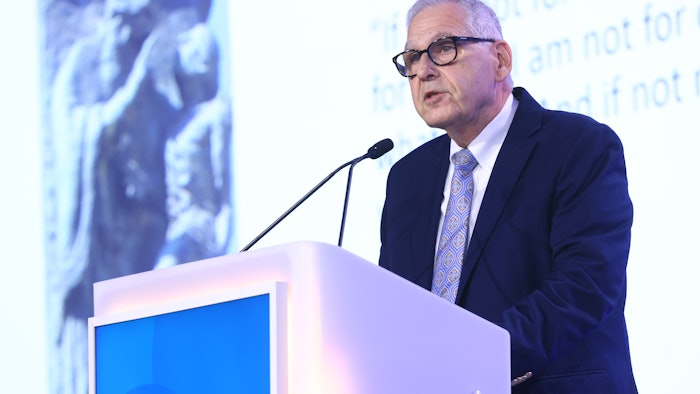
N001 – Celebrating Excellence: A Duo of Distinguished Talks
The Greek philosopher Heraclitus is credited with saying that the only constant in life is change. Centuries later, French writer Jean-Baptise Alphonse Karr wrote, “the more things change, the more they stay the same.”
Yesterday, Warren R. Heymann, MD, FAAD, who has experienced much change over his more than 40-year career in dermatology, echoed those sentiments in this year’s Everett C. Fox, MD, Memorial Lecture, “Permanencies Amidst Innovation: Lifetime Lessons of a Dermatologist,” as part of N001 – Celebrating Excellence: A Duo of Distinguished Talks.
“The bottom line is you’ll learn a lot of new and exciting things over time, and they’re going to eventually be obsolete with ever-advancing innovation,” said Dr. Heymann, professor of medicine and pediatrics at Cooper Medical School of Rowan University and clinical professor of dermatology at Perelman School of Medicine at the University of Pennsylvania in Philadelphia. His goal, he said, was to deliver a lecture that will be just as relevant in 2064 as it is in 2024.
History-making game changers
Some of the biggest changes Dr. Heymann has witnessed in his dermatologic career include new treatments for chronic disorders, such as JAK inhibitors for alopecia areata.
“While they are game changers,” he said, “they are still drugs with adverse effects that you have to explain, and it’s still not a cure. So, in that sense, it’s a change, but not all that much different than what came before.”
Dr. Heymann said his own career has been bookended by HIV (in the 1980s) and the recent challenges of COVID-19. In that time, he has seen growing diversity in leadership and the rise in the use of artificial intelligence (AI). But amid all that change, some things remain timeless.
“Think about musicians like Mozart and Beethoven,” he said. “Forty years from now, people may be saying ‘who’s Taylor Swift?’ But those masters will still be here.”
A change for the better
Many changes over the past 40 years have been positive. Dr. Heymann said the move to electronic health records (EHR) from the old handwritten ones — which was pushed as part of the Affordable Care Act — has led to faster and better care for patients as a result of ease of communication. There were other reasons to make the switch, however.
“What tipped the balance for me was a simpler reason — I had to admit that my handwriting had gotten so awful that even I could not translate it,” he said.
Dr. Heymann pointed to some keys to his philosophy of adapting to change and maintaining a sense of permanence in a world of innovation:
- Be honest with yourself: Look at what inspires you, what worries you, what you love, what you can live without, why you are here, and what you want to achieve.
- Develop your own philosophy: Look at how you will approach your practice and your patients.
- Retake your oath regularly: Reaffirm what it means to be a dermatologist and a physician.
- Mentoring: Find an excellent mentor and be an excellent mentor.
- Prioritize learning when to say “yes” and when to say “no.”
- Learn how to say, “I don’t know.”
“Continual learning is important when it comes to skin diseases,” he said. “There are things that you may not recognize if you weren’t looking for them. Keep studying and seeking the truth. Keep up with the literature.”
Partner with your patient
You should also keep your antennae up for the needs of your patients, which may be different than what you think.
“The most instructive patient I ever had was a lady who lambasted me because she thought I was more focused on her skin than I was on her wellbeing, even though she got better,” he said.
Dr. Heymann stressed the importance of being grateful throughout your career for those who have supported you and for your patients. Many of them, he explained, will be just as grateful in return.
“Whoever has saved a life has saved the entire world,” he said. “You’re going to see patients who have eagerly anticipated their dermatologist visit, and that visit will mean the world to them.”


